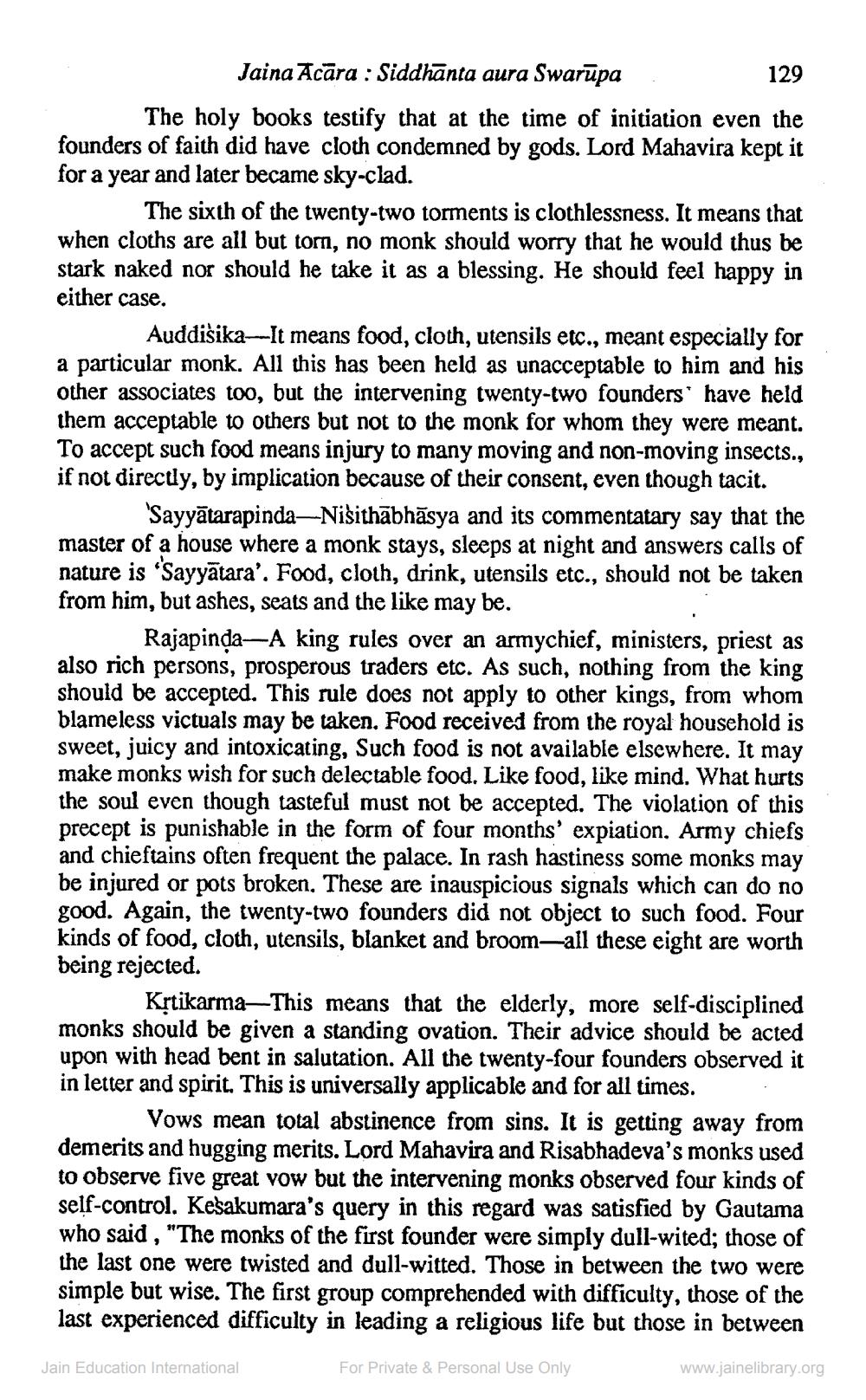________________
Jaina Acāra : Siddhanta aura Swarūpa
129 The holy books testify that at the time of initiation even the founders of faith did have cloth condemned by gods. Lord Mahavira kept it for a year and later became sky-clad.
The sixth of the twenty-two torments is clothlessness. It means that when cloths are all but tom, no monk should worry that he would thus be stark naked nor should he take it as a blessing. He should feel happy in either case.
Auddisika-It means food, cloth, utensils etc., meant especially for a particular monk. All this has been held as unacceptable to him and his other associates too, but the intervening twenty-two founders' have held them acceptable to others but not to the monk for whom they were meant. To accept such food means injury to many moving and non-moving insects., if not direcuy, by implication because of their consent, even though tacit.
Sayyātarapinda—Nišithābhāsya and its commentatary say that the master of a house where a monk stays, sleeps at night and answers calls of nature is “Sayyātara'. Food, cloth, drink, utensils etc., should not be taken from him, but ashes, seats and the like may be
Rajapinda-A king rules over an armychief, ministers, priest as also rich persons, prosperous traders etc. As such, nothing from the king should be accepted. This rule does not apply to other kings, from whom blameless victuals may be taken. Food received from the royal household is sweet, juicy and intoxicating, Such food is not available elsewhere. It may make monks wish for such delectable food. Like food, like mind. What hurts the soul even though tasteful must not be accepted. The violation of this precept is punishable in the form of four months' expiation. Army chiefs and chieftains often frequent the palace. In rash hastiness some monks may be injured or pots broken. These are inauspicious signals which can do no good. Again, the twenty-two founders did not object to such food. Four kinds of food, cloth, utensils, blanket and broom—all these eight are worth being rejected.
Krtikarma—This means that the elderly, more self-disciplined monks should be given a standing ovation. Their advice should be acted upon with head bent in salutation. All the twenty-four founders observed it in letter and spirit. This is universally applicable and for all times.
Vows mean total abstinence from sins. It is getting away from demerits and hugging merits. Lord Mahavira and Risabhadeva's monks used to observe five great vow but the intervening monks observed four kinds of self-control. Kesakumara's query in this regard was satisfied by Gautama who said , "The monks of the first founder were simply dull-wited; those of the last one were twisted and dull-witted. Those in between the two were simple but wise. The first group comprehended with difficulty, those of the last experienced difficulty in leading a religious life but those in between
Jain Education International
For Private & Personal Use Only
www.jainelibrary.org




